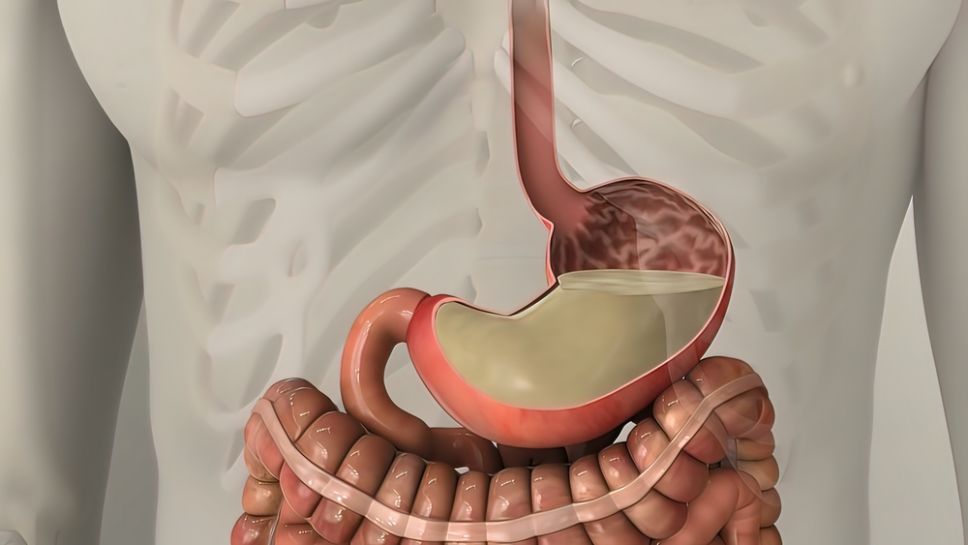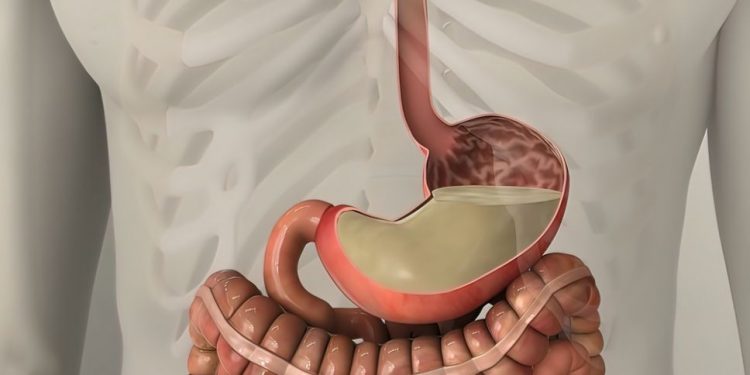From the moment you swallow food until it is released in a bowel movement, your digestive tract performs an amazing task of contracting and expanding to move it through. However, if the contractions of your intestine become slow or stop altogether, you may have a small bowel obstruction. This condition can be dangerous, especially if not treated promptly. The first symptoms are typically a feeling of fullness, abdominal pain and bloating. Other symptoms can include nausea and vomiting of dark green bile. An x-ray of the abdomen can usually show that there is an obstruction. However, to identify the location, severity and etiology of your obstruction, you must visit your doctor.
Your doctor will likely give you a barium enema, where they put a liquid containing a whitish-silver metal called barium into your rectum. The barium will spread into your bowels and will show up on an x-ray as a bright area, if there is a blockage. Your doctor will also listen with a stethoscope to hear any sounds the bowels are making. You may also have a CAT scan or an ultrasound of your abdomen to help make the diagnosis.
There are several causes of a bowel obstruction. A hernia can cause a partial blockage, as can scar tissue from surgery. Some types of growths, such as tumors or a cyst, can also lead to an obstruction. Sometimes a part of your intestine gets twisted and won’t allow anything to pass through, which is known as a mechanical obstruction. Inflammation or an infection can cause the bowel to get swollen, which can cause an obstruction.

Most doctors try to avoid surgery in people who have a bowel obstruction, because they don’t want to create more scar tissue. Instead, they try to get the bowel to rest. They ask patients to stop eating and drinking until the blockage is gone. They may also run a tube through your nose and into the stomach to empty out the contents of your stomach. This is known as a nasogastric tube (NG tube). During this time, your doctor will probably give you fluids through a vein (intravenous or IV) and pain medicine.
Once your bowels are able to relax, they should begin to move feces on their own again. However, if the intestines are still unable to function normally, your doctor might have to resort to more invasive surgery.
When a bowel obstruction is caused by adhesions, they are often removed through the use of a special procedure called Bowel Decompression. This is performed by putting a thin tube into the abdomen to reduce the pressure on the affected area and break down adhesions. Once the bowel is able to work again, your doctor will remove the tube and you can resume eating and drinking. If a blockage is due to a twisted section of the bowel, or is causing intussusception, you will need surgical removal of the impacted portion of your bowel.









